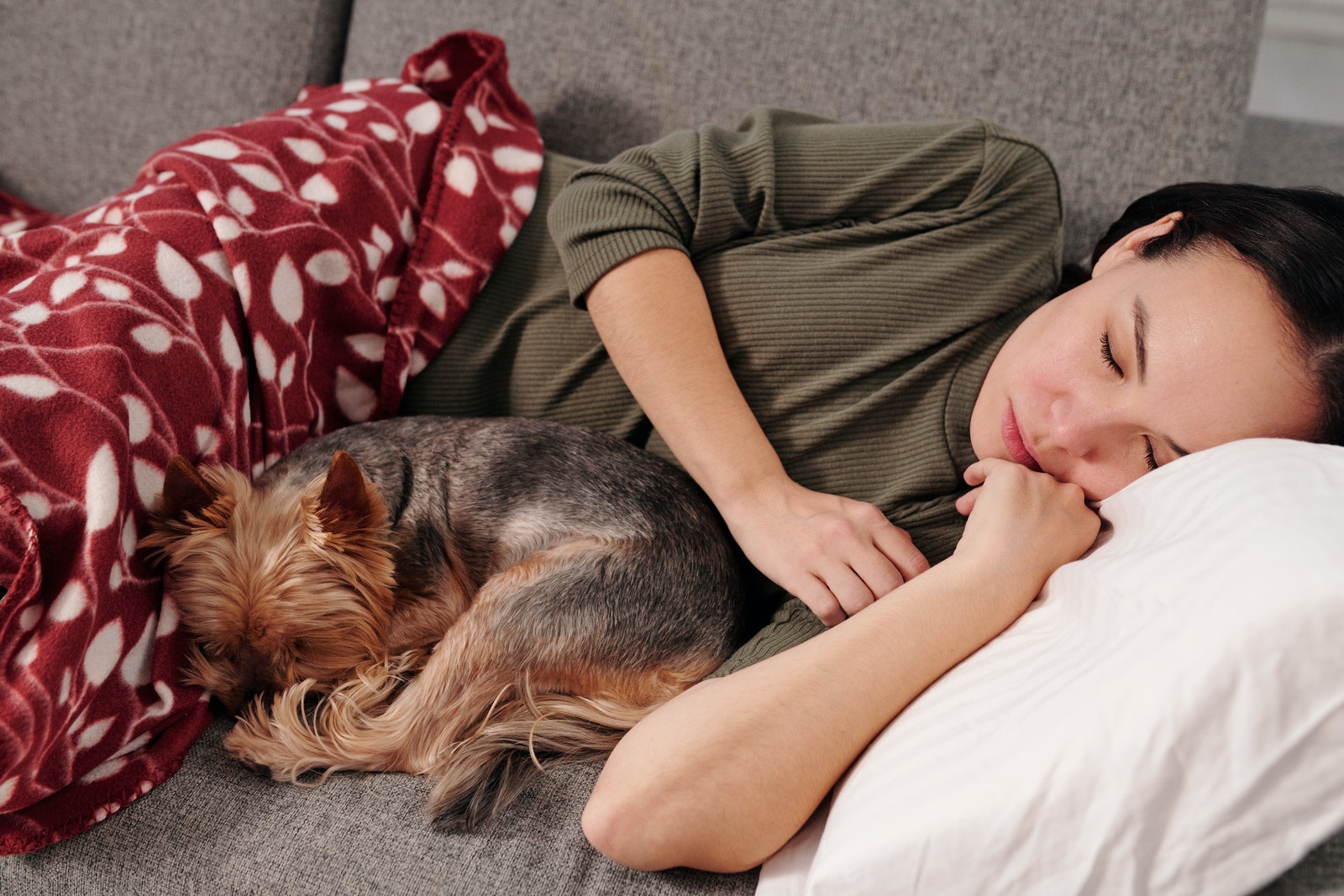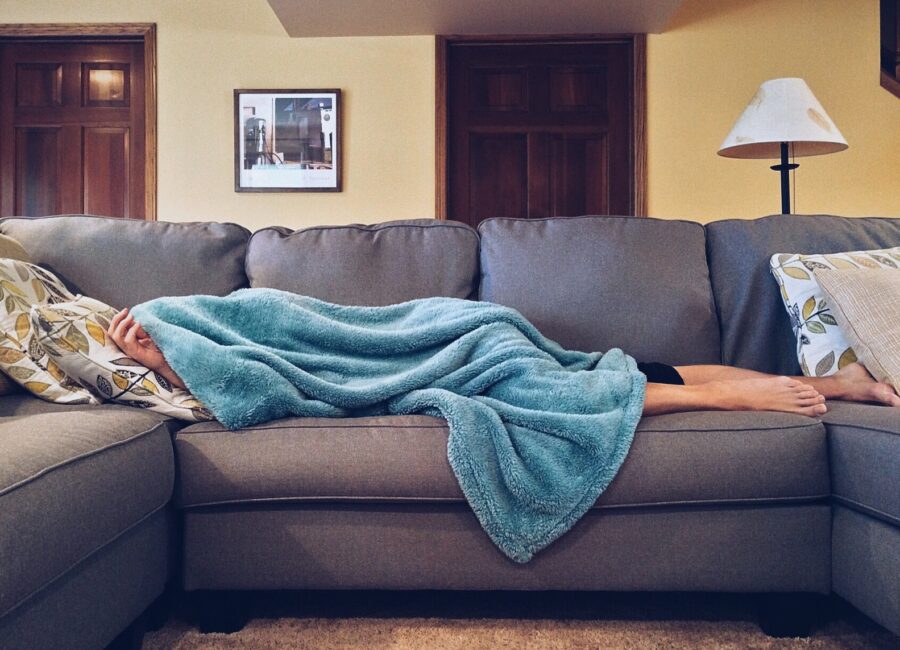
Some people like to sleep on the sofa, not only at night but also at other times. Unfortunately, even if you find sleeping on the couch quite comfortable and practical, you should not continue that habit.
Remember that sofas don’t absorb moisture the way beds are designed. So sleeping on the couch when you’re sweating a lot, for example, isn’t a good idea.
Besides being able to make you feel cold, it can also make the sofa wet. Sleeping on the couch once in a while is not a problem. However, sofas are designed to rest upright, not for sleeping. So, don’t be surprised if you feel the side effects of sleeping on the sofa.
Harmful Effects
Some of the side effects that you may feel when sleeping on the sofa include:
1. Back and neck pain
According to several studies, it can predict the problem of stiffness, back pain, and neck pain from a person’s sleeping posture. If you’ve ever slept on the couch and then woke up at night with a bent neck or pinched nerves, your sleeping posture is to blame. Sleeping with spine and neck support is the safest way to sleep, and that’s often not achieved by sleeping on the couch. If you occasionally fall asleep on the sofa and wake up with nerve pain or stiffness, it will probably go away with time. However, if you get into the habit of sleeping on the couch, it can cause long-term damage to your spine and neck.
2. Foot pain
Our body length may be longer than the length of the sofa. This condition can cause the legs to hang awkwardly over the edge of the couch. Although a higher leg position during sleep is good for circulation, sleeping in an extended position with the legs dangling can often cause numbness and tingling in the lower limbs.
3. Not safe for babies
If you co-sleep with your baby, sleeping on the couch is dangerous for your baby. Sharing a bed is not recommended for children under the age of 1 y.o, but a soft surface such as a sofa significantly increases the risk of suffocation for the baby. They can sleep comfortably on their backs. If you’ve been up all night because of your baby’s needs and are tired, ask someone else in the house to double-check and ensure you’re not sleeping with your baby on the couch.
4. Poor sleep quality
If you fall asleep on the sofa in the living room, you are more likely to be disturbed at night due to the movement of other people. Also, sleeping on the sofa often means you fall asleep with the television on. Sleeping in front of the TV can lead to a lack of REM sleep, disturbing dreams, and a higher risk of waking up at night. We are often advised to keep our smartphones and TV screens away from the primary bedroom.
How to Sleeping on the Sofa

However, some people are forced to sleep on the sofa. Such as, the bedroom doesn’t fit because guests are visiting or your partner snores. If you have to, try some of the following tips to make sleeping on the sofa more comfortable while minimizing the risk of waking up with pinched nerves or a bent back.
- Treat the sofa like a mattress by covering it with moisture-wicking cotton sheets.
- Do not use sofa cushions to sleep. Use a firm pillow with a removable pillowcase to support your neck while sleeping.
- Position yourself comfortably and deliberately. Don’t let yourself fall asleep in an uncomfortable position. Stretch along the sofa and lie down so that your back is flat.
- Turn off the TV and keep the phone out of hand before falling asleep at night. Ideally, it would be best if you were screen-free for an hour before bed at night for the best quality sleep.
- Avoid increasing heart rate with exercise or large meals for three hours before bedtime.
- Go to bed at the same time every night if you can.



